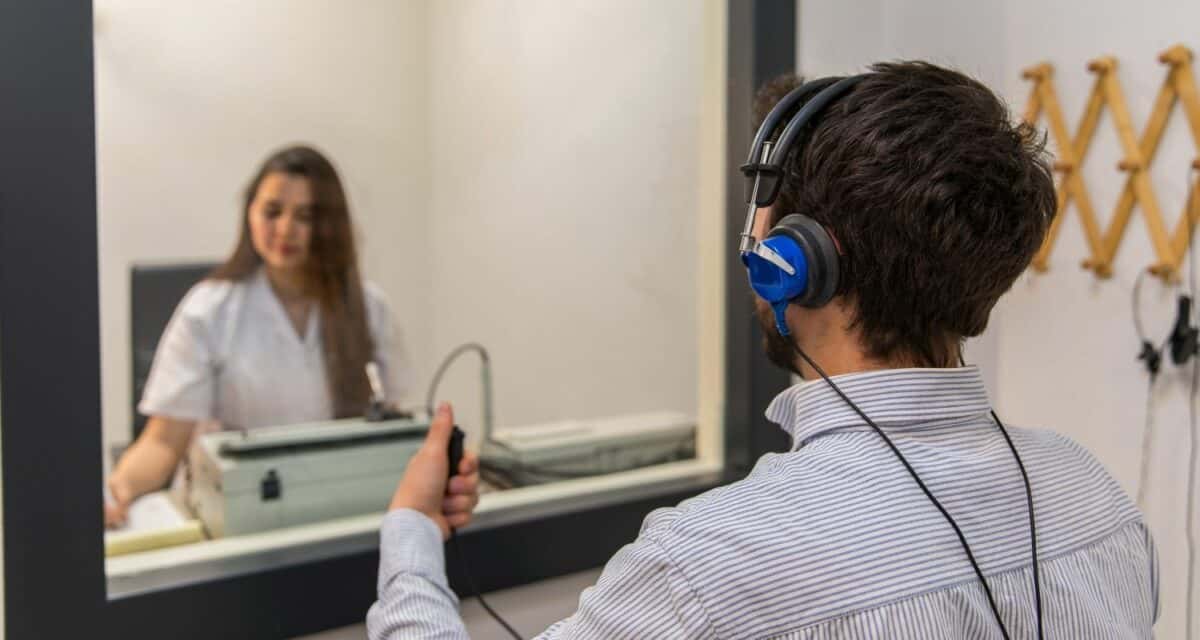What causes hearing loss? Who will tell you if you have hearing loss, and who’re the most at risk? You think you know the answers to these questions, but several myths and misconceptions about hearing loss need to be busted. Don’t let these misconceptions stand between you and your hearing. Our understanding of hearing health has grown in leaps and bounds in the last few years, and it’s time to share that knowledge with you.
Myth #1: My Doctor Will Tell Me If I Have Hearing Loss
You trust your primary physician with your health, so you should trust them with your hearing, too, right? Wrong. While your doctor is a valuable source of medical knowledge, they don’t usually perform hearing tests. Family doctors have a wide array of knowledge and trust their patients to tell them what problems they are experiencing. You don’t expect your doctor to clean your teeth or check your eyesight. You’ll need to visit a hearing specialist to get your hearing checked regularly.
Myth #2: Only Seniors Struggle with Hearing Loss
With hearing loss affecting 1 in 5 Americans, it shouldn’t shock you that hearing loss is something people of all ages struggle to overcome. Hearing loss isn’t just caused by aging. It’s affected by illness and infection, disease, environmental factors, some medications, and exposure to loud noises like construction sites or rock concerts.
In recent years, young adults are most at risk of hearing loss. The Centers for Disease Control and Prevention reports that 16% of teenagers have reported hearing loss. Teens are exposed to dangerously loud sound levels through unsafe listening practices. With the rise of new technology that allows them to crank up the volume on their iPhones and iPods and blast sounds through their earbuds, young ears are more at risk than older ears have ever been. This noise-induced hearing loss affects more than 26 million Americans under 65.
Myth #3: Hearing in One Ear is Normal, so I Don’t Need a Hearing Aid
Leaving your hearing loss untreated is never a good option. Even if you think one of your ears is fine, your brain works overtime to help you usually hear. In overcompensating for the other ear, you’ll hardly notice as the hearing in your good ear changes. You’ll be missing sounds the good ear can’t pick up, have difficulty localizing sounds, and experience more listening fatigue. The best way to keep track of your hearing health and hearing loss in your good and bad ears is to have a routine hearing test every year.
If you are struggling to hear, it’s essential to seek treatment as soon as possible. Once your hearing starts to deteriorate, the unused pathways in your brain start to break down, and before you know it, you’ll never be able to recover those sounds, even with the help of a hearing device. To experience clear hearing and help your brain, get a hearing aid in your weaker ears as soon as you notice your hearing isn’t quite what it used to be.
Myth #4: I Can Have Perfect Hearing Again
Unfortunately, this is another misconception. Hearing devices have directional microphones, feedback suppression, and background noise cancellation, but they still can’t function exactly like a healthy human ear. While hearing technology is incredibly advanced and will help you hear the sounds you thought you’d lost forever, it can never restore your hearing to what it was before your hearing loss.
On a more positive note, hearing aids give you back your ability to communicate, have meaningful conversations with your loved ones, enjoy effortless dinners with your friends, and hear your grandkids laughing in the next room.
Myth #5: There’s No Point Treating My Hearing Loss
This is the most tragic misconception of all. Hearing loss is one of the most treatable conditions affecting Americans, and hearing aids can turn your whole life around! If you think no hearing device can match your hearing loss, think again. We’ll work with you to pick the device and programs you need to get back to hearing with every style and model to suit your hearing loss and hearing needs. Visit us today and let us help you hear.


